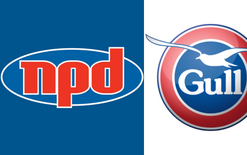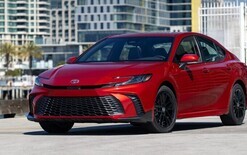Targets essential for success

The Motor Industry Association (MIA) is urging the government to aim for the European Union’s currently enacted 2030 emissions targets for new vehicles in New Zealand by 2032.
It then wants this country to follow the EU’s future targets two years after they are adopted in Europe.
In its submission on the Land Transport (Clean Vehicles) Amendment Bill, which will enact the clean cars programme, the MIA says the government’s targets “are the most aggressive anywhere in the world”.
The association adds they are unreasonable because they seek to get ahead of major automotive markets and fail to acknowledge our country’s link to the Australian market.
“Acknowledging we are starting from behind the rest of the OECD, the rate at which we catch up is important,” says David Crawford, chief executive of the MIA.
“Too fast and the costs become significant. Neither is it possible to get ahead of the major markets, such as Europe, Japan and the US, without forcing absorbent costs onto the sector and consumers.
“The rate of reduction under MIA-recommended targets are still the most aggressive in the world and also get ahead of business as usual by at least five years.”
The MIA and its members are committed to transforming their sector to a low-emissions future and will continue to do so with increasing speed. Key to this success will be how fast the sector can be transformed.
“It can’t be done overnight, nor can we get ahead of the major markets,” adds Crawford, pictured. “We can, however, catch up and become a fast follower. We need the select committee to recommend changes to targets in the bill to recognise we can’t overtake major markets, but we can catch up to them in time.”
The bill also contains a provision that enables the Minister of Transport to require a certain minimum percentage of vehicles imported to be zero-emissions models.
However, the MIA contends this is not needed because the proposed clean car standard will achieve this by default.
“To reach the targets in the bill in 2027, at least 50 per cent of new vehicles would need to be zero emissions,” explains Crawford. “While we wish we could get that many by then, it is not possible.
“Nevertheless, we will be bringing in as many as we can get as it is the easiest way to lower average emissions. Put another way, the incentive already exists in the standard.”
As for classifications, the MIA points out that class MC vehicles – large four-by-four off-roaders – were originally included with Type B vehicles during the consultation phase under the previous coalition government.
Given their heavier, stronger and more robust build characteristics, such vehicles should be included in the group for light commercials, it says.
As for targets, the MIA notes cabinet agreed to review them in 2024. The association believes the legislation should require a target review in 2024, again in 2028 and then every five years after that because “industry requires certainty around when targets will be reviewed”.
As for the bigger picture, the MIA’s submission states new vehicles imported into New Zealand are made in many different jurisdictions throughout the world.
“However, these are not our source markets. There is a distinction between where vehicles are manufactured and what markets those vehicles are manufactured for.
“Over 80 per cent of new vehicles arriving in New Zealand are manufactured to meet the Australian Design Rules and the Australian market preferences.
“The MIA asks the select committee to acknowledge that since most new vehicles entering New Zealand are made for the Australian market, it hampers our ability to aggressively reduce CO2 emissions – at least in the short to medium term.
“The MIA acknowledges climate change is the single biggest issue facing humanity and it is incumbent on all of us to change our behaviours to reduce the impacts our lifestyles are imposing onto the fragile environment we rely on to live in.
“We all want to live in a better world and we, the importers of new motor vehicles, want to help New Zealand achieve that.”
Click here to access the MIA’s full submission on the Land Transport (Clean Vehicles) Amendment Bill.





